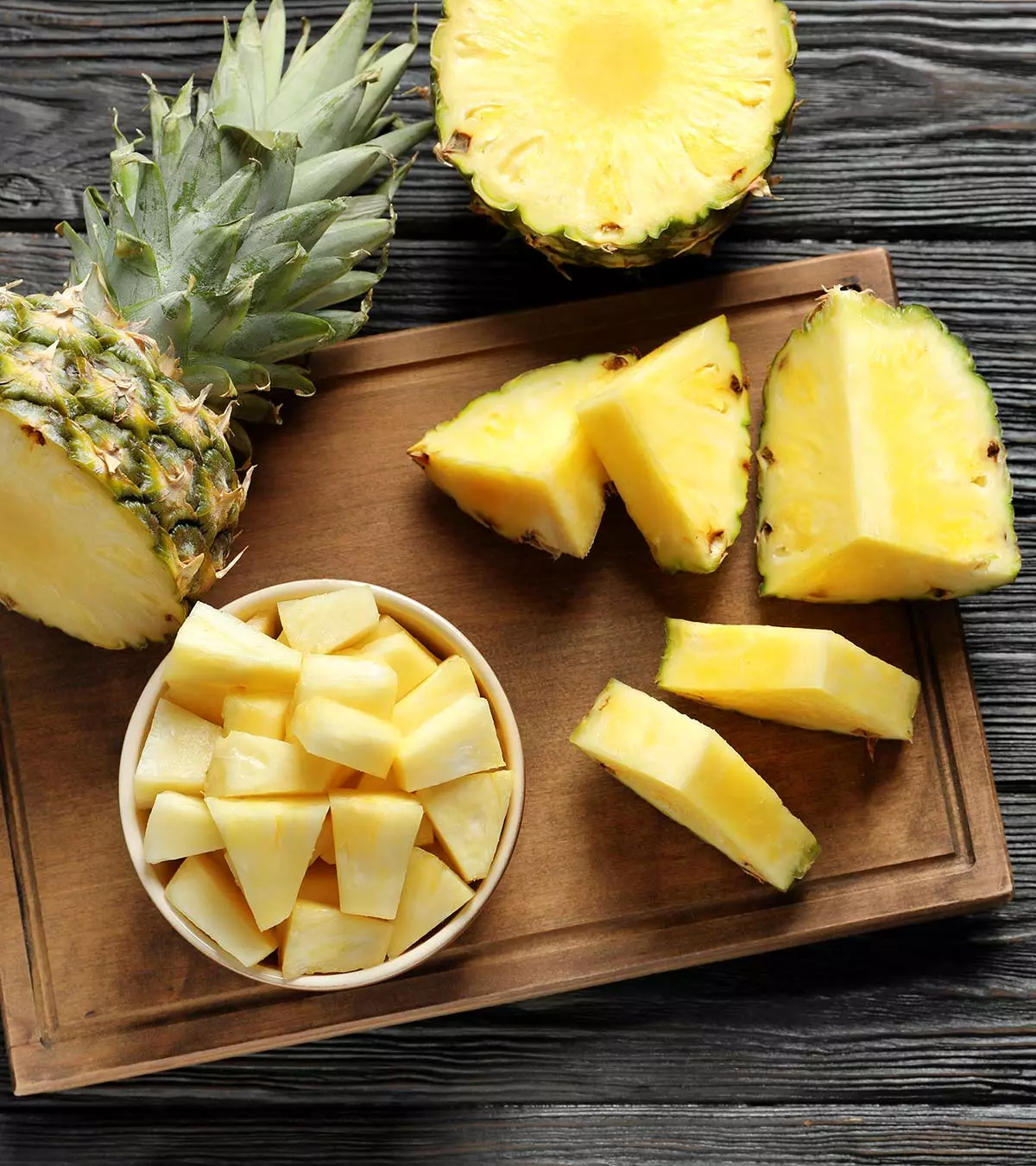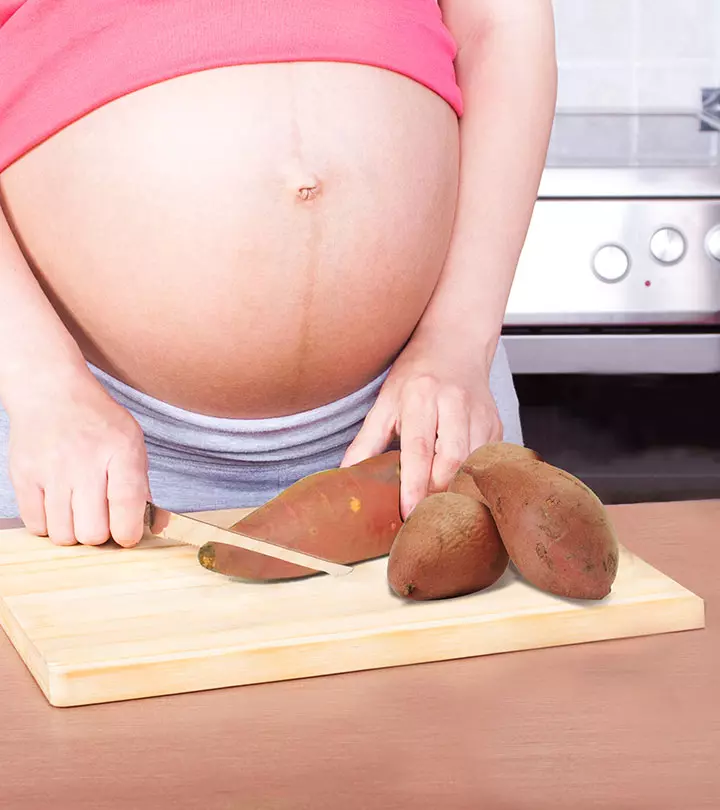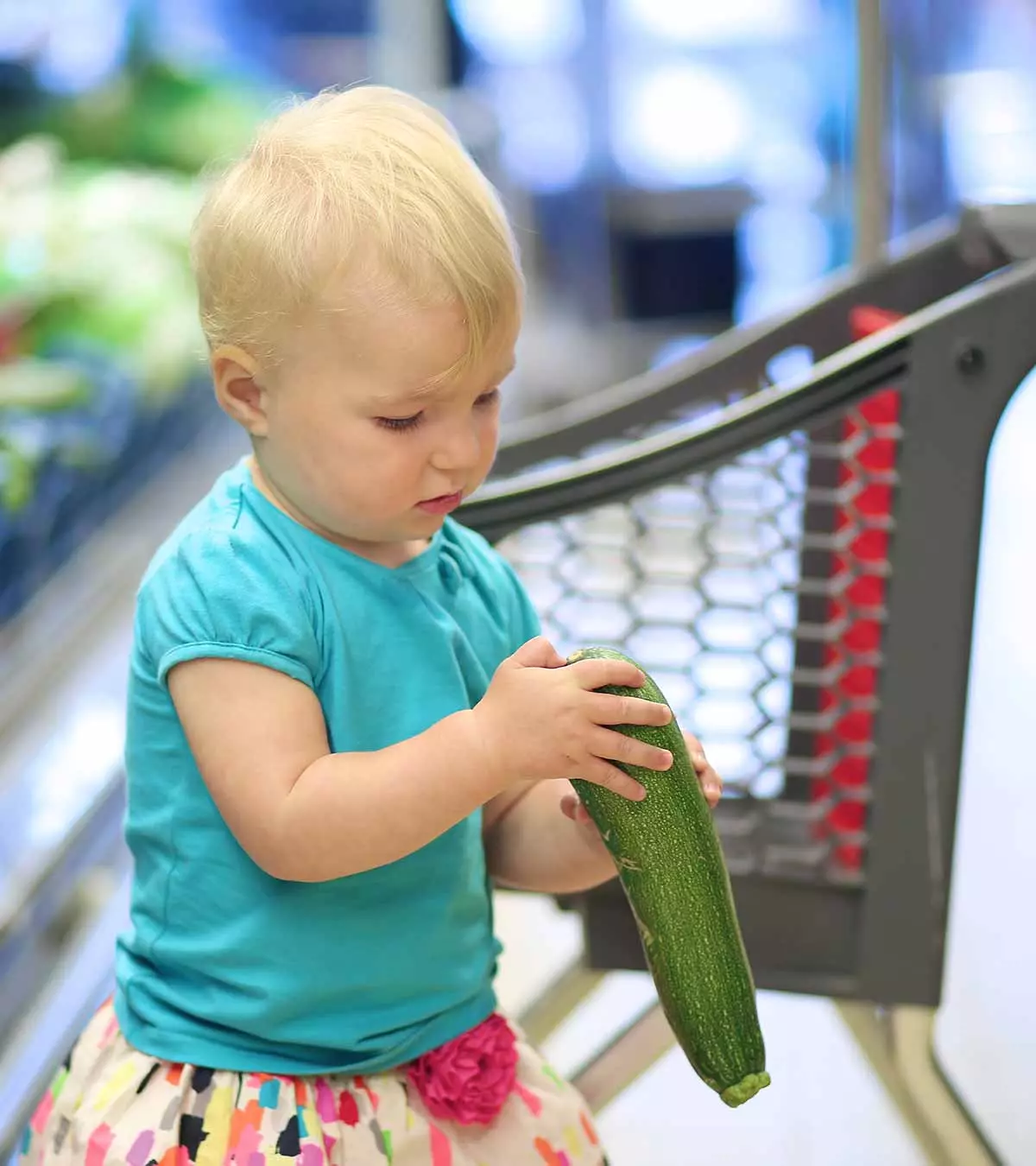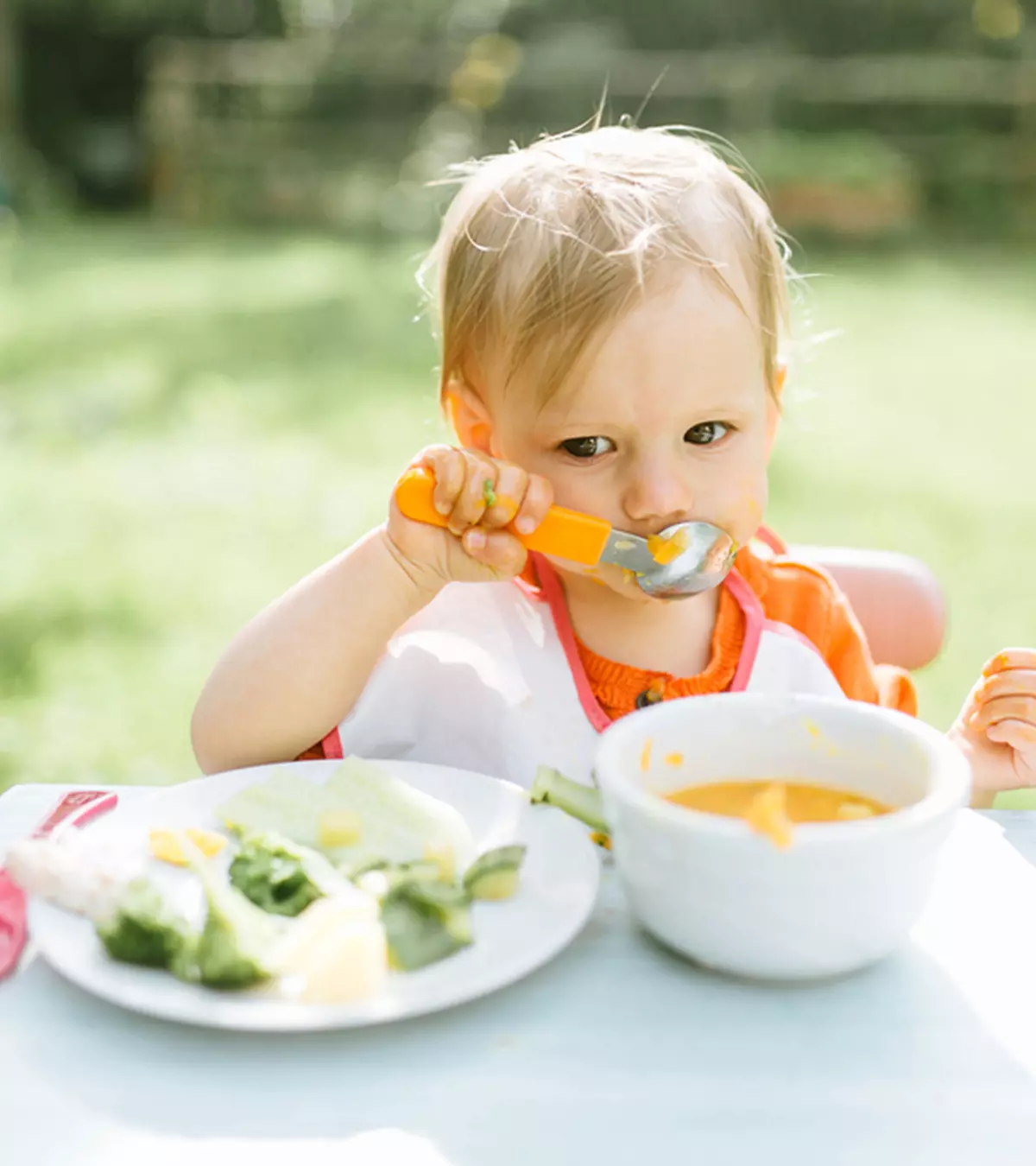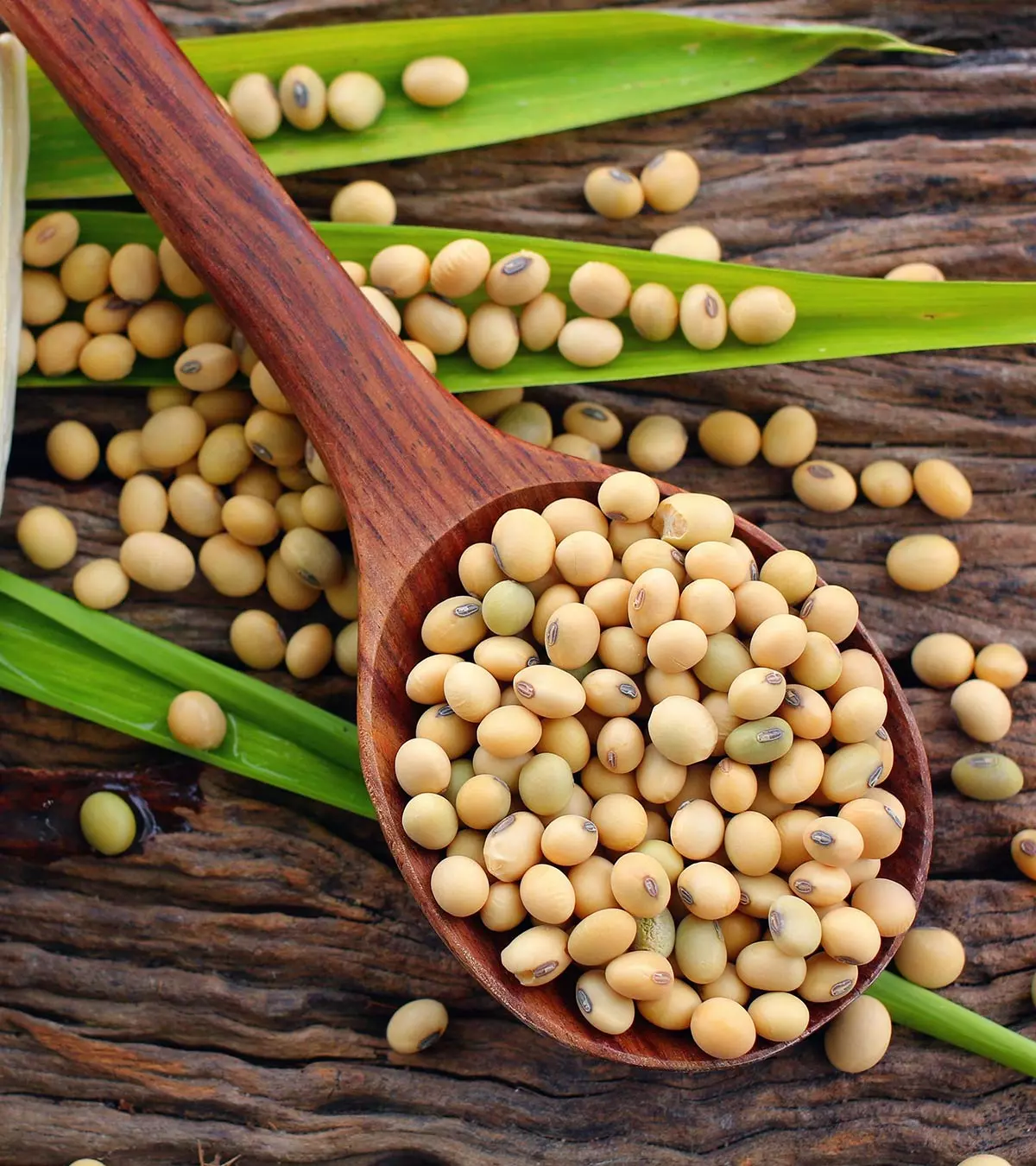
Image: Shutterstock
Consuming soybeans during pregnancy is a good way to add protein and essential nutrients to your diet. However, it should be eaten in moderation to avoid any harmful effects. Maternal nutrition plays an important role in the growth and development of the baby. A well-balanced diet can provide all the nutrients along with recommended prenatal vitamin and mineral supplementations.
Read on to know the recommended servings and benefits of soybeans during pregnancy and how to incorporate soy into your pregnancy diet.
Key Pointers
- Soybeans and their products are a good source of proteins, fiber, iron, folate, vitamins, and zinc.
- Plant estrogens and goitrogens present in soybeans may impact fetal brain development and cause hypothyroidism.
- There is no conclusive evidence on the safety of consuming soybeans during pregnancy.
- Moderate consumption of soy products such as tofu and soymilk is considered safe during pregnancy.
- It is always recommended to consult a doctor or a dietitian for advice on the safe intake of soy during pregnancy.
The Debate On The Consumption Of Soybeans During Pregnancy

Image: Shutterstock
Soybeans are considered to be an excellent food choice for pregnant women. They contain high protein, omega-3 fatty acids, fiber, iron, folate, folic acid, zinc, magnesium, calcium, vitamin B6, vitamin K, and antioxidants. However, these sources of plant-based proteins can cause some problems if consumed while pregnant. It is recommended that pregnant women consume no more than one to two servings of soy products daily to balance nutritional benefits while preventing any potential risks (7).
 Quick fact
Quick factThe most significant risk of eating soybeans while pregnant is that they may affect your baby’s brain development. This is because soybeans have phytoestrogens (plant estrogens), which can interfere with the production of hormones in the body. In addition, soybeans contain goitrogens (compounds that block thyroid function), leading to hypothyroidism in babies. Hypothyroidism is when the thyroid gland does not produce enough thyroid hormone.
The research findings may keep you wondering if soybeans are safe during pregnancy. Here is more on the pros and cons.
Cons Of Consuming Soybean During Pregnancy
First, let’s see the cons of taking soybean during pregnancy:
1. Reproductive issues
The fetus developing inside you gets sensitive to estrogen in certain phases of pregnancy.
- Research studies conducted on animals have shown risks associated with exposure to estrogenic substances from isoflavones and phytoestrogens in soy.
- Exposure to phytoestrogen in pregnancy results in long term complications in reproduction. The research findings were published in the journal Experimental Biology and Medicine in the January 2004 issue.
2. Risk of breast cancer

Image: Shutterstock
According to the reports published in the Oncology Reports journal in September 2009, an increase in estrogen levels increases the risk of breast cancer. Here is what the research studies conclude:
- Research studies suggest intake of soybeans increases risk of breast cancer. According to the US National Cancer Institute, breast cancer is seen in about one in 3,000 pregnant women.
- Experiments conducted on animals showed an increased risk of mammary tumors.
3. Phytoestrogen concern
A fetus is extremely sensitive to the growing hormone levels during pregnancy.
Concerns for soybean intake during pregnancy increase with substances like phytoestrogens.
- The substances tend to mimic estrogen hormone.
- Phytoestrogens have a similar structure to estrogen and they tend to attach to estrogen receptor sites in different parts of the body.
- According to the New York University Langone Medical Center the action tends to reduce or increase estrogen effects in the body.
Vital Things For Consideration

Image: Shutterstock
In the Experimental Biology and Medicine study, the researchers conducted experiments on female rats and found the following:
- The isoflavone levels were found similar to what humans were exposed to through their diet.
- Results from animals do not translate exactly to humans.
- You must consult with your obstetrician, whenever you have concerns about what you eat.
- Research findings suggest that babies are sensitive to increases in estrogen levels during the late gestation period.
- So, you may not need to avoid soybean or soy products all through your pregnancy.
Even though soybean is a healthy food, you may often be asked to avoid taking some of the “healthy” foods in your pregnancy. According to the studies conducted by American Journal of Obstetrics and Gynecology, it was found that consumption of soybeans in large amounts affected fetal development and increased risks of cancer as well. However, the study was conducted on only 7 women.
Soybeans: A Major Source Of Protein
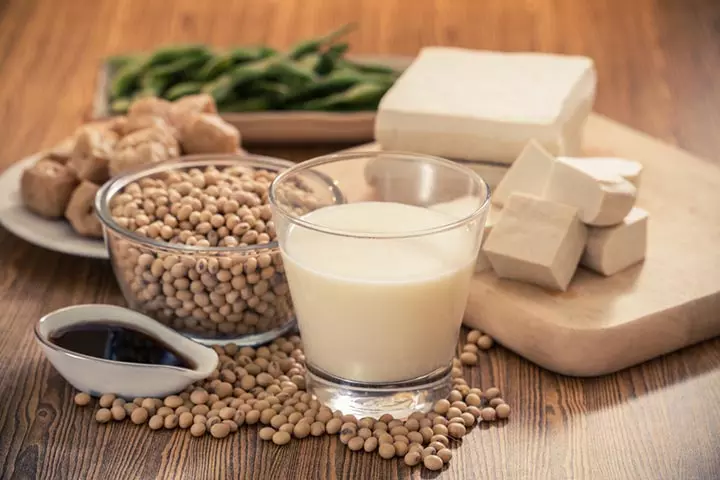
Image: Shutterstock
Soy contains about 40% of protein, which is the highest content among different plant products.
 Nutritional fact
Nutritional fact- Since animal protein contains essential amino acids and lacks pulse protein, soy is used as a replacement for animal proteins. For example, Edamame during pregnancy is a complete protein source with all the essential amino acids.
- Soybean is processed into different soy products like soy milk, soy flour, cottage cheese such as tofu and fermented products like miso and tempeh.
- Protein requirements increase during pregnancy to meet the daily requirements of you as well as for the baby’s development.
- Soy foods contribute smartly to your increased protein need. Thus, incorporation of soy products can be a good choice during pregnancy.
Frequently Asked Questions
1. How much soy is safe during pregnancy?
Experts suggest taking around one to two servings of soy or soy products could be safe and beneficial for our health (2). Consequently, one study found that pregnant women who consumed low levels of soy could be at increased risk of disorders such as gestational diabetes. Further studies are needed to understand soy’s effects clearly (3).
2. Is soybean good for fertility?
There is not much scientific evidence to prove the effectiveness of soy in enhancing fertility. In addition, a recent study says that soy and its derivatives may not affect fertility in healthy women (4).
3. Can soy products be a good alternative for women who are lactose intolerant during pregnancy?
Soy products and soy milk during pregnancy may seem like the most natural alternative to dairy products for individuals with lactose intolerance. However, it is best to consult a doctor before including soy products in your pregnancy diet, as there might be specific risks and disadvantages associated with their consumption during pregnancy.
Soybeans are an effective alternative for animal proteins and may be a useful addition to a healthy diet to meet the increased protein requirements during pregnancy. However, there is controversy regarding the consumption of soybeans during pregnancy due to the presence of phytoestrogens in them. This estrogenic effect of soybean derivatives may affect hormone balance during pregnancy, and babies can be sensitive to this change later in pregnancy. However, soy products need not be avoided throughout pregnancy. It is advisable to consume soybean in moderate amounts when pregnant and consult your healthcare provider to clear your doubts.
Infographic: Ways To Add More Soybeans Into Your Pregnancy Diet
Soybeans are good meat alternatives, are high in protein, and have essential amino acids. So, do you wish to have soybeans during pregnancy? Read this infographic to discover ways to include it in your diet. However, confirm with your OB-GYN if you are allergic to it before consuming it.
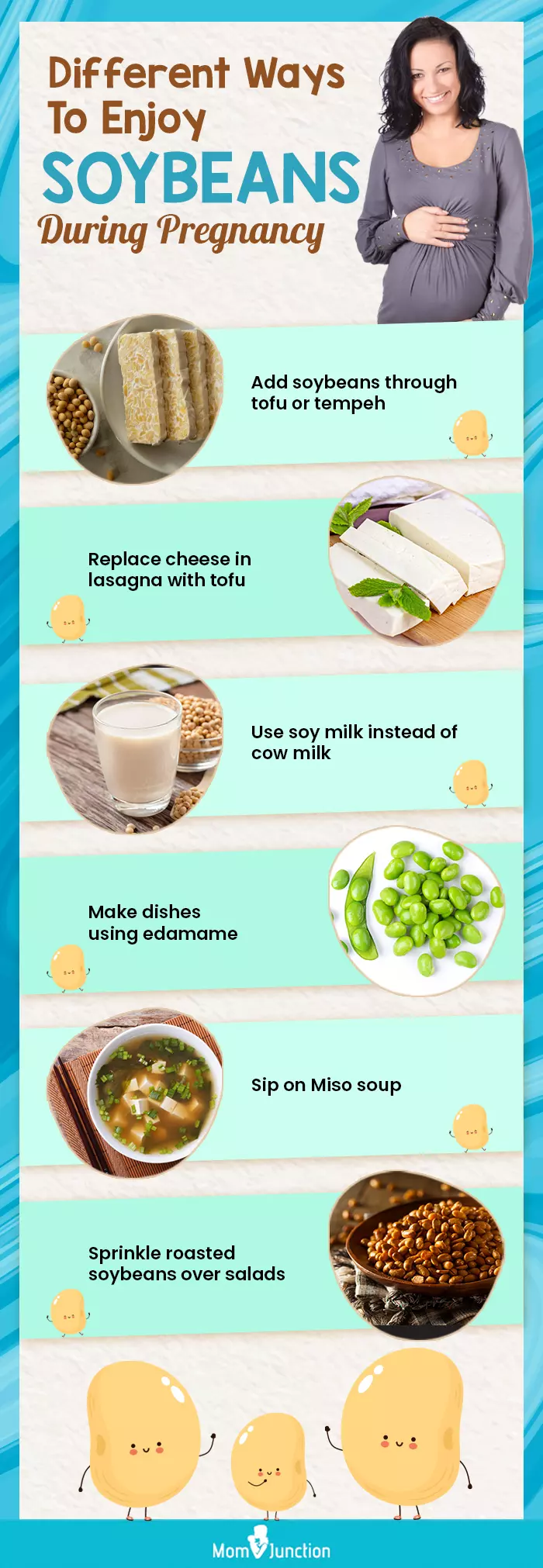
Illustration: Momjunction Design Team
Illustration: Soybeans During Pregnancy: Helpful Or Harmful?
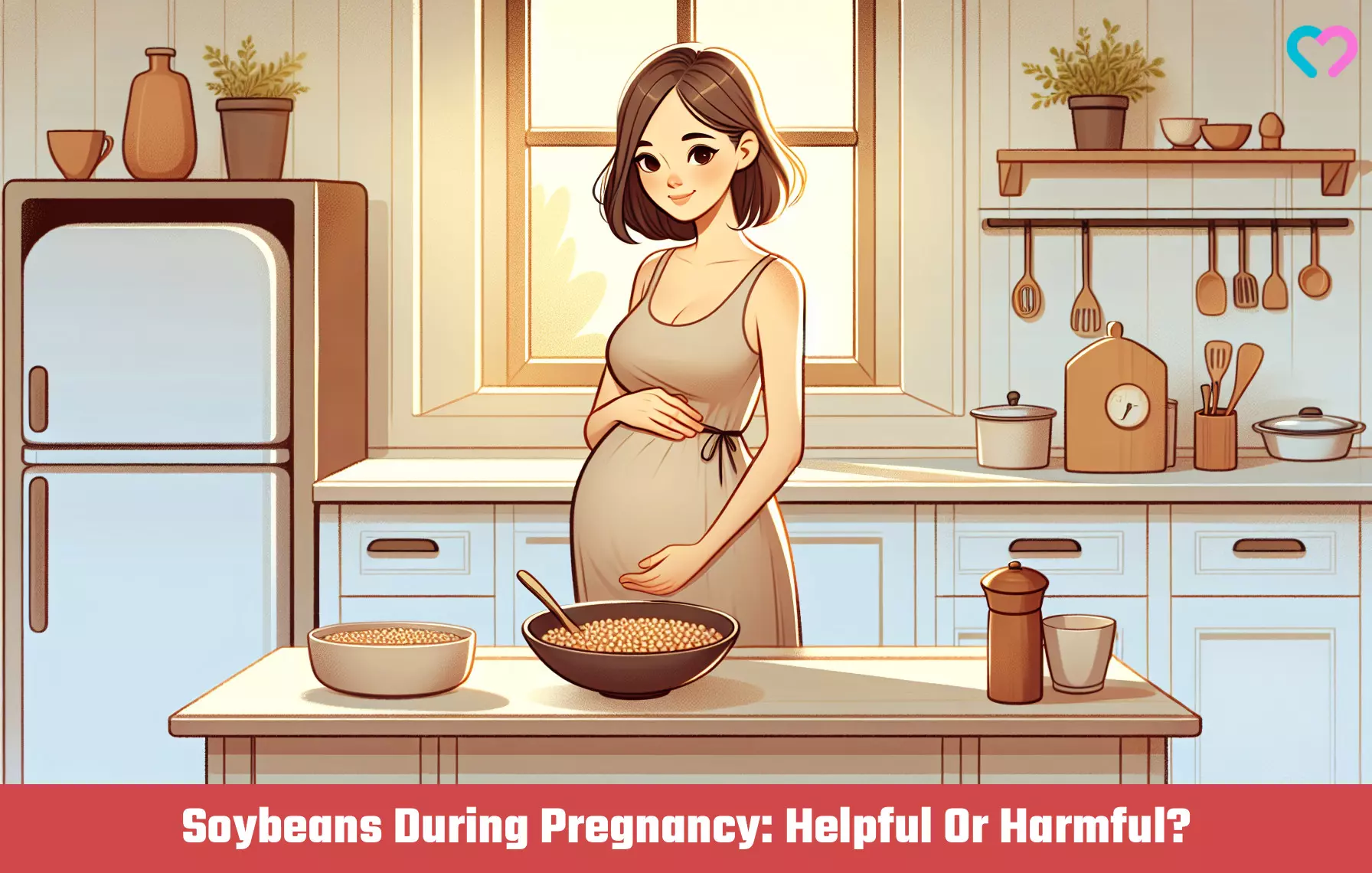
Image: Dall·E/MomJunction Design Team
References
- Health Benefits of Soybean
https://www.medindia.net/health/diet-and-nutrition/health-benefits-of-soybean.htm - Soybeans and soy foods
https://www.betterhealth.vic.gov.au/health/healthyliving/soybeans - Yan Wang et al., (2021); The association between soy intake and risk of gestational diabetes mellitus: a prospective cohort study.
https://bmcpregnancychildbirth.biomedcentral.com/articles/10.1186/s12884-021-04175-9 - Gianluca Rizzo et al. (2022); The role of soy and soy isoflavones on women’s fertility and related outcomes: an update
https://www.cambridge.org/core/journals/journal-of-nutritional-science/article/role-of-soy-and-soy-isoflavones-on-womens-fertility-and-related-outcomes-an-update/29483840F197DC57A2BD0DCEE2A3543F - Rizzo G and Baroni L (2018); Soy, Soy Foods and Their Role in Vegetarian Diets.
https://www.ncbi.nlm.nih.gov/pmc/articles/PMC5793271/ - Nutrition During Pregnancy.
https://www.acog.org/womens-health/faqs/nutrition-during-pregnancy - Soybeans And Soy Foods.
https://www.betterhealth.vic.gov.au/health/healthyliving/soybeans
Community Experiences
Join the conversation and become a part of our nurturing community! Share your stories, experiences, and insights to connect with fellow parents.
Read full bio of Reda Elmardi
Read full bio of Anshuman Mohapatra
Read full bio of Swati Patwal
Read full bio of Dr. Joyani Das







